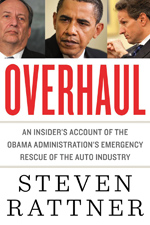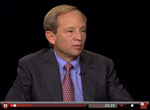Originally published in the Financial Times
Amid the finger-pointing about the failures of capitalism, we should not forget the responsibility of governments. They relaxed regulatory requirements, turned a blind eye to dangerous activities and indulged in their own excesses. Capitalism is like an energetic child who needs boundaries and discipline. If a toddler accidentally sets his home on fire, it is the parents who bear the blame. “Capitalism in crisis” could easily be subtitled “government in crisis”.
I am not trying to excuse capitalism or its principal actors from a generous portion of the blame for the pain of the past four years. Serious alterations are needed. But government has also let us down. The eurozone’s mess is hardly the fault of capitalism or the financial system. Public officials who created the euro went ahead with the hare-brained scheme of their own accord. Indeed, many financiers (myself included) proclaimed loudly that the euro was ill-designed and likely to run aground.
Then, while the peripheral countries were gorging themselves on cheap money, even the Germans turned a blind eye. It was no secret that Greece’s debt was exploding as it doubled government wages, vastly expanded public job rolls and even spent $14bn on the 2004 Olympics, more than twice the budget.
Imprudent public finances were not limited to Greece. Countries across Europe burst through central government budget ceilings. Many were recently repaid with downgrades. Yes, a measure of increased public spending was needed to combat the recession that accompanied the financial meltdown. But in the case of the US, because of poor tax and spending policies in the seven preceding years, the nation went into firefighting mode with its tanks partly depleted, having squandered a fiscal surplus.
Or take the rise of global income inequality over several decades. That was not a secret either, yet the US chose measures that exacerbated the problem rather than diminished it. Tax cuts in 2001 and 2003 famously led to Warren Buffett’s secretary paying a higher tax rate than he did. In 1993 the 400 wealthiest Americans paid 29.4 per cent tax; in 2008, it was 18.1 per cent.
By now, the failure of regulators should be well accepted. In the US deregulation gave rise to a series of problems, ranging from radioactive levels of leverage at securities firms to imprudent lending to homeowners. For years, America has had consumer protections around everything from the safety of children’s sleepwear to interest rates on credit card borrowing.
. . .
Yet virtually no such help was provided to homebuyers as ever more tempting but ill-advised loans were dangled in front of them.
Nor were most overseers any better than their corporate counterparts at identifying the coming tsunami. In February 2006, Ben Bernanke, who has generally been an outstanding chairman of the Federal Reserve, said that “house prices will probably continue to rise”. Just five months later, they began their precipitous decline.
Undoubtedly the benefits of capitalism vastly outweigh its deficiencies. No other arrangement could possibly have lifted the standard of living of so many so substantially in the postwar period.
More important, the global citizenry appear to agree. While past periods of economic dislocation have often led to calls for radical change, both Greece and Italy have installed technocratic prime ministers who are focused on correcting the past failures of government rather than imprisoning bankers.
So we must press on with fixing capitalism. My vote is that we devote equal attention to the public sector apparatus as to business. An increasingly integrated global economy needs to be paired with global governmental structures. While the Basel accords have brought some uniformity to bank reserve requirements, in other areas nations still go their own way. The US has chosen to limit banks’ ability to engage in proprietary trading, the UK is separating deposit-taking from trading altogether. Some countries have left their systems unchanged.
The rise of multinational corporations and lack of a global taxation regime have given rise to a race to the bottom in corporate tax rates, another contribution to income inequality. According to a recent Edelman poll, substantial pluralities of citizens around the world believe business is not sufficiently regulated. If capitalists wish to avoid more regulation, they must get behind better governmental oversight.


